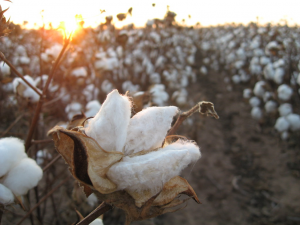By Lauryn Boag
November 15, 2021 was the first time Canada Border Services Agency (CBSA) seized goods coming into the country, claiming they were produced by forced labour. The shipment included women’s and children’s clothing produced in the Xinjiang province of China.
When Canada signed the Canada-United States-Mexico Agreement (CUSMA) in July 2020, it committed to prohibiting the importation of goods made from forced labour. Following this agreement, amendments were made to the Customs Tariff, which made the importation of goods produced using forced labour illegal.
Though this recent seizure of goods shows Canada is making use of the existing power under the Customs Tariff to combat forced labour, the November seizure is the first public announcement. Canada has not provided sufficient transparency surrounding the implementation of this new agreement, citing privacy requirements in the Customs Act, which states that customs information can only be shared in certain instances – mainly within criminal or legal proceedings. As a result of the privacy requirements, the name of the importing company is not available to the public. Despite these changes to the Customs Tariff, there are reports indicating that goods banned in the United States over suspicions of forced labour continue to be imported into Canada. World Vision completed an in-depth study finding that $3.7 billion dollars of food products imported to Canada in 2019 had ties to child labour. It is clear that further steps need to be taken to strengthen the enforcement of these legislative changes so they will be effective in preventing products made using forced labour from entering Canada.
In particular, there has been increasing international concern that goods produced from the cotton and solar panel industries may be tied to forced labour in China’s Xinjiang province. Global Affairs Canada has voiced their alarm over the human rights violations that occur in the Xinjiang region, including forced labour of Uyghurs and other ethnic minorities. Canada has taken additional steps, including requiring companies seeking services or support from the Trade Commissioner Service (TCS) who have connections to the Xinjiang region to sign the Integrity Declaration on Doing Business with Xinjiang Entities to indicate their awareness of the prohibition of sourcing goods created from forced labour and other human rights violations in the Xinjiang region. While TCS provides financial support and advice for business entities looking to expand abroad, entities that already have established connections in the Xinjiang region will not be impacted by the requirement if they do not require assistance from TCS.

Importers ultimately have the responsibility to ensure their goods are not created using forced labour under the Customs Tariff. Canada could impose even stronger prohibitions by implementing robust human rights due diligence laws within a company’s supply chain, which would require companies to review their supply chains and business activities for human rights violations and then take steps to reduce and prevent their reoccurrence. Canada has proposed new supply chain legislation, Bill S-211, An Act to enact the Fighting Against Forced Labour and Child Labour in Supply Chains Act and to amend the Customs Tariff, requiring Canadian businesses to report practices relating to forced labour within their supply chains. These reports would have to be published on the company’s website, and include detailed steps taken to reduce the risk of forced and child labour. The Bill proposes summary conviction offences and fines for any person or entity who fails to comply or who knowingly publishes false or misleading statements. Unfortunately, the Bill fails to include human rights due diligence requirements, which could impose another tier of checks and balances through the suppliers themselves, who often have more local connections and a better background to evaluate the local human rights situation. If Canada were to have an enforceable Customs Tariff alongside due diligence supply chain legislation, it would make Canada a leading force in the fight against modern day slavery.
While I welcome the new measures Canada has implemented to combat forced labour, further legislative and policy reforms are still necessary to ensure transparency, checks and balances, and effectiveness. For instance, mandatory human rights due diligence processes would provide the public with this transparency and assurance that forced labour practices are not being utilized within an entity’s supply chain. Given the growing public concerns and awareness in preventing the importation of goods produced by forced labour, I look forward to seeing continued improvement in the current regime to help end forced labour practices through amendments to Bill S-211 and further information concerning how CBSA’s seizure of goods process functions.
About the author: Lauryn Boag is a second-year student at the Peter A. Allard School of Law and is working with the IJHR Clinic as part of the All-Party Parliamentary Group to End Modern Slavery and Human Trafficking team.